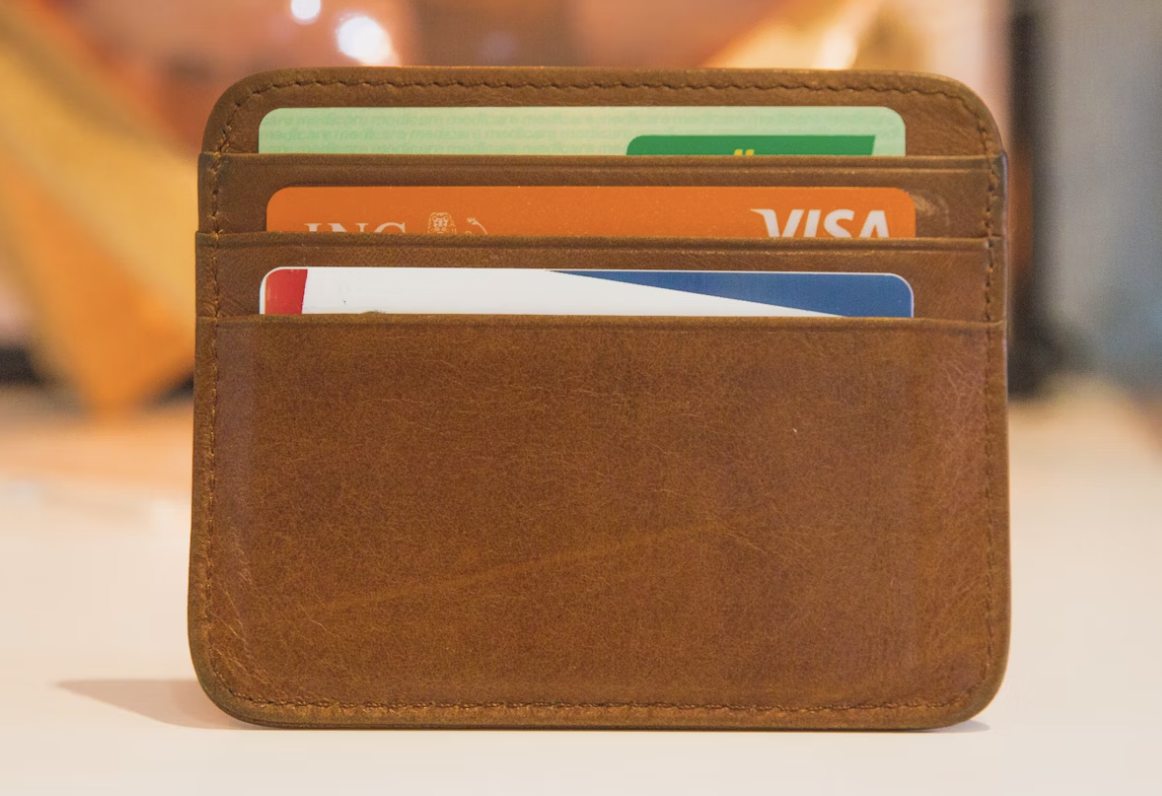
It's a familiar scene: you're at your local café ordering a flat white when the barista cheerfully announces the price is $4.50, then adds, 'That'll be $4.61 with the card surcharge.' You glance at your wallet, see no cash, and reluctantly tap your card while wondering why you're paying extra to use your own money.
If this sounds like your weekly routine, you're not alone. And importantly, change is finally coming.
The Reserve Bank of Australia (RBA) has proposed sweeping reforms that could eliminate these pesky surcharges entirely, potentially saving Australian households around $60 each year. But the journey to get there is proving more complex than initially anticipated.
In this article
What's actually happening with the surcharge review
The Reserve Bank released a consultation paper in July 2025 following an extensive public consultation process that began with an issues paper in October 2024.
Contrary to some reports suggesting delays until March 2026, the RBA is currently consulting on the proposal until 26 August 2025, with final recommendations expected by the end of the year.
Australians will, however, have to wait longer than expected for the final decision. The RBA recently confirmed it would extend the timeline for concluding its review of merchant card payment costs and surcharging until March 2026, after receiving 174 written submissions from consumers, small businesses, corporations, government entities, banks and payment industry representatives.
The Payments System Board has reached the preliminary view that it would be in the public interest to remove surcharging on eftpos, Mastercard and Visa cards. This goes beyond the government's original plan to ban only debit card surcharges—the proposed reforms would apply to all card types, including credit cards.
The RBA said most submissions supported removing surcharges across both debit and credit card networks, citing benefits such as simplifying payments, improving price transparency, and reducing ‘drip pricing’. Some large merchants supported banning debit surcharges only, while others opposed the change altogether, warning it could raise consumer prices and disadvantage cash users.
'The move towards a 'cashless society' is disproportionately impacting seniors who struggle with technology and online banking, highlighting concerns about digital exclusion'
Why seniors are feeling the pinch most
The shift away from cash has created a perfect storm for older Australians. Seniors are especially sensitive to the additional charges being levied by smaller businesses such as cafes and restaurants, where surcharges of up to 2 per cent are not uncommon and can amount to paying extra hundreds of dollars over a year, just by using a credit or debit card.
Surcharging has led many Australians to avoid using cards at retail outlets that impose a surcharge and are, instead, returning to cash. National Seniors Australia is supporting the need to retain cash as an instrumental part of the payment economy.
Consumers already hit by rising prices and cost-of-living pressures face a double whammy as more retailers not only impose a surcharge but also go cashless.
Current surcharge rules in Australia
Under RBA regulations, businesses can charge surcharges, but only to recover their actual payment processing costs. They cannot profit from these fees.
Typical surcharges range from 0.5 per cent for eftpos to 1.5 per cent or higher for premium credit cards.
However, enforcement has proven challenging, and many businesses charge flat rates regardless of the actual cost differences between payment types.
The numbers behind the proposal
Consumers currently pay around $1.2 billion in card surcharges each year. Every household could save about $60 per year, based on the RBA's estimates.
The RBA's comprehensive approach aims to tackle the problem from multiple angles:
For consumers: Complete elimination of surcharges on major card networks could save the collective $1.2 billion annually.
For small businesses: About 90 per cent of small businesses don't currently surcharge and would gain around $185 million in net benefits. These businesses often pay higher interchange fees, so the reform will reduce their costs.
For banks: Banks that issue cards stand to lose about $900 million in interchange revenue under the preferred reform package. Some may respond by raising cardholder fees or cutting rewards, especially on premium credit cards.
RBA Governor Michele Bullock said the central bank was 'going to take the time to get these changes right,' adding that the review’s scope and implications required careful assessment before any final decisions were made.
What the changes mean for your daily shopping
- No more surcharges on eftpos, Mastercard or Visa payments
- Potential 0.1 per cent increase in overall prices as businesses absorb costs
- Banks may reduce credit card rewards or increase annual fees
- American Express cards may still attract surcharges
- Changes wouldn't take effect until July 2026 at the earliest
How Australia compares globally
Australia's approach to surcharging is increasingly out of step with international practices. The UK and the European Union ban card surcharges. The proposed ban would mirror moves in the EU and UK, with one expert calling it a 'clean and clear decision'.
Submissions to the RBA also noted that removing surcharges could align Australia with global standards, making consumer costs more transparent and promoting competition between payment providers.
A recent survey found that 85 per cent of respondents said they would prefer surcharges be built into prices rather than added on top of final bill amounts.
What you can do right now
While waiting for potential reforms, here are practical ways to avoid or minimise surcharges:
Pay with cash when possible—it remains the most reliable way to avoid surcharges entirely.
Ask about surcharges before paying. Look for what is often a small sign on the shop counter with a percentage fee.
Choose eftpos over other cards when given the option—it typically attracts the lowest surcharges.
Consider the total cost when deciding between cash and card, especially for small purchases.
Did you know?
Did you know?
Some merchants are charging illegal surcharges of up to 10 per cent on weekends, rising to 20-22 per cent on Sundays and public holidays. These rates far exceed the actual cost of payment processing and breach Australian consumer law.
The road ahead
If adopted, the changes would come into effect from 1 July 2026, allowing six months for businesses and banks to adjust systems and pricing. The consultation process continues through August 2025, with industry stakeholders, consumer groups, and payment providers all having their say.
However, the RBA’s decision to extend the final phase of the review to March 2026 means the release of its concluding report and policy recommendations will take longer than initially planned, though the proposed July 2026 start date has not yet been officially changed.
The RBA argues that surcharging is no longer achieving its intended purpose of steering consumers to make more efficient payment choices, as avoiding surcharges has become harder as cash usage has declined. Removing surcharging would make card payments simpler, more transparent and help to increase competition.
What This Means For You
For seniors particularly, this reform could provide welcome relief from the growing burden of transaction fees that have made even simple purchases more expensive. The challenge now lies in ensuring the transition doesn't inadvertently create other barriers for those who already struggle with an increasingly digital payment landscape.
What's your experience with card surcharges—do you find them frustrating enough to seek out cash, or have you simply accepted them as part of modern shopping? Share your thoughts and any clever workarounds you've discovered in the comments below.
Primary Source
https://au.finance.yahoo.com/news/m...ows-to-get-these-changes-right-030119467.html
Review of Merchant Card Payment Costs and Surcharging | Media Releases | RBA
Cited text: The Reserve Bank of Australia (RBA) has today released a Consultation Paper as part of its Review of Merchant Card Payment Costs and Surcharging. This...
Excerpt: The Reserve Bank released a consultation paper in July 2025 following an extensive public consultation process that began with an issues paper in October 2024.
https://www.rba.gov.au/media-releases/2025/mr-25-19.html
Cash flow finance: What the RBA’s proposed surcharge ban means for businesses
Cited text: The RBA is currently consulting on this proposal until 26 August 2025, with final recommendations expected by the end of the year.
Excerpt: the RBA is currently consulting on the proposal until 26 August 2025, with final recommendations expected by the end of the year.
https://www.budgetly.com.au/insight...s-proposed-surcharge-ban-means-for-businesses
Review of Merchant Card Payment Costs and Surcharging | Media Releases | RBA
Cited text: The Payments System Board has reached the preliminary view that it would be in the public interest to: remove surcharging on eftpos, Mastercard and Vi...
Excerpt: The Payments System Board has reached the preliminary view that it would be in the public interest to remove surcharging on eftpos, Mastercard and Visa cards.
https://www.rba.gov.au/media-releases/2025/mr-25-19.html
As cash disappears, card surcharges are getting bigger—National Seniors Australia
Cited text: The Reserve Bank of Australia (RBA) analysis shouldn’t surprise seniors who are especially sensitive to the additional charges being levied by smaller...
Excerpt: Seniors are especially sensitive to the additional charges being levied by smaller businesses such as cafes and restaurants, where surcharges of up to 2 per cent are not uncommon and can amount to paying extra hundreds of dollars over a year, just…
https://nationalseniors.com.au/news...disappears-card-surcharges-are-getting-bigger
Call for ban on card surcharges—National Seniors Australia
Cited text: Surcharging has led many Australians to avoid using cards at retail outlets that impose a surcharge and are, instead, returning to cash. National Seni...
Excerpt: Surcharging has led many Australians to avoid using cards at retail outlets that impose a surcharge and are, instead, returning to cash.
https://nationalseniors.com.au/news/latest-news/call-for-ban-on-card-surcharges
Paying card surcharges: here’s what we know—National Seniors Australia
Cited text: Consumers already hit by rising prices and cost-of-living pressures face a double whammy as more retailers not only impose a surcharge but also go cas...
Excerpt: Consumers already hit by rising prices and cost-of-living pressures face a double whammy as more retailers not only impose a surcharge but also go cashless.
https://nationalseniors.com.au/news/featured-news/paying-card-surcharges-heres-what-we-know
Review of Merchant Card Payment Costs and Surcharging | Media Releases | RBA
Cited text: Consumers currently pay around $1.2 billion in card surcharges each year.
Excerpt: Consumers currently pay around $1.2 billion in card surcharges each year.
https://www.rba.gov.au/media-releases/2025/mr-25-19.html
No more card surcharges: what the Reserve Bank’s proposed changes mean for your wallet
Cited text: Every household could save about $60 per year, based on the RBA’s estimates.
Excerpt: Every household could save about $60 per year, based on the RBA's estimates.
https://theconversation.com/no-more...-proposed-changes-mean-for-your-wallet-261165
No more card surcharges: what the Reserve Bank’s proposed changes mean for your wallet
Cited text: About 90 per cent of small businesses don’t currently surcharge and would gain around $185 million in net benefits. These businesses often pay higher intercha...
Excerpt: About 90 per cent of small businesses don't currently surcharge and would gain around $185 million in net benefits.
https://theconversation.com/no-more...-proposed-changes-mean-for-your-wallet-261165
No more card surcharges: what the Reserve Bank’s proposed changes mean for your wallet
Cited text: Banks that issue cards stand to lose about $900 million in interchange revenue under the preferred reform package. Some may respond by raising cardhol...
Excerpt: Banks that issue cards stand to lose about $900 million in interchange revenue under the preferred reform package.
https://theconversation.com/no-more...-proposed-changes-mean-for-your-wallet-261165
As cash disappears, card surcharges are getting bigger—National Seniors Australia
Cited text: In part, that’s because the UK and the European Union ban card surcharges.
Excerpt: The UK and the European Union ban card surcharges.
https://nationalseniors.com.au/news...disappears-card-surcharges-are-getting-bigger
RBA moves to ban card transaction surcharges | Information Age | ACS
Cited text: A ban, the RBA said, would simplify card payments, make consumer costs more transparent, and increase competition—not to mention fulfilling a Labor ...
Excerpt: The proposed ban would mirror moves in the EU and UK, with one expert calling it a 'clean and clear decision'.
https://ia.acs.org.au/article/2025/rba-moves-to-ban-card-transaction-surcharges.html
RBA moves to ban card transaction surcharges | Information Age | ACS
Cited text: That’s a sentiment shared by 85 per cent of the Visa-Lonergan survey respondents, who said they would prefer surcharges be built into prices rather th...
Excerpt: A recent survey found that 85 per cent of respondents said they would prefer surcharges be built into prices rather than added on top of final bill amounts.
https://ia.acs.org.au/article/2025/rba-moves-to-ban-card-transaction-surcharges.html
As cash disappears, card surcharges are getting bigger—National Seniors Australia
Cited text: Ask the retailer or shop assistant if and how much they charge, and look for what is often a small sign on the shop counter with a percentage fee.
Excerpt: Look for what is often a small sign on the shop counter with a percentage fee.
https://nationalseniors.com.au/news...disappears-card-surcharges-are-getting-bigger
Cash flow finance: What the RBA’s proposed surcharge ban means for businesses
Cited text: If adopted, the changes would come into effect from 1 July 2026, allowing six months for businesses and banks to adjust systems and pricing.
Excerpt: If adopted, the changes would come into effect from 1 July 2026, allowing six months for businesses and banks to adjust systems and pricing.
https://www.budgetly.com.au/insight...s-proposed-surcharge-ban-means-for-businesses
Review of Merchant Card Payment Costs and Surcharging | Media Releases | RBA
Cited text: Surcharging is no longer achieving its intended purpose of steering consumers to make more efficient payment choices: avoiding surcharges has become h...
Excerpt: The RBA argues that surcharging is no longer achieving its intended purpose of steering consumers to make more efficient payment choices, as avoiding surcharges has become harder as cash usage has declined.
https://www.rba.gov.au/media-releases/2025/mr-25-19.html







